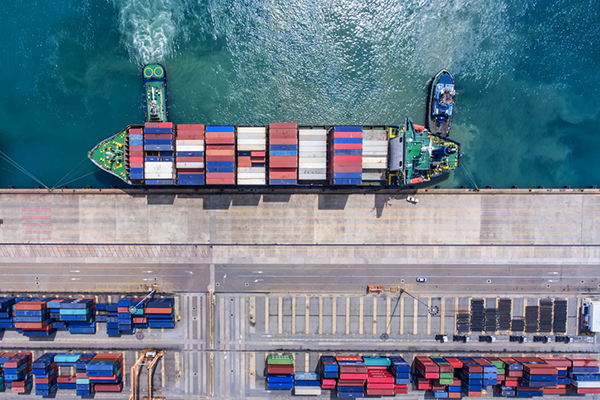Signs of a turnaround in the prospects of global container shipping companies began surfacing last July when rates began creeping up through the Peak Season. Overcapacity, however, continues to haunt the industry and may keep it from a sustainable recovery.
This issue an others are certain to be examined in greater detail when the IANA Expo convenes in Long Beach next week.
Given the challenges that all but the top tier players have from a cost competitiveness perspective, analysts feel that it's reasonable to assume that there will be some further consolidation. This is in spite of how the sector has distilled into the relatively small number of significant independent carriers today.
“Certainly, it's not out of the question that the make-up of some of the alliances could see some changes over time,” says Ron Widdows, the current chairman of the World Shipping Council. “But given what has taken place in the last couple years, perhaps things will settle a bit before any further changes take place.”
Meanwhile, a handful of carrier executives are now taking “differentiation” seriously and are undertaking changes in their products and services to target that segment of the market that will value significantly better service that's reliably delivered.
The challenge here, says Widdows, is that Alliance structures make implementation more difficult, as they don't control terminal operations. “In my engagement with shippers over the last few years, I get a sense of a growing desire to seek out partners who can positively impact service and its effect on their supply chains,” he says.
Widdows is also the executive chairman of American Intermodal Management, which provides shipping, logistics, terminals and intermodal transportation consultancy services globally. Something of a legend in the ocean carrier arena, he served as the CEO of Rickmers Holding, based in Hamburg, Germany from April 2012 to April 2014. Prior to joining Rickmers, Widdows was group president and CEO of Neptune Orient Lines, the parent company of APL. His career with NOL/APL spanned more than 30 years.
“So, over the years, I've been with companies that had built a ‘service excellent' carrier model, and a shipper portfolio that was based on accessing a disproportionate participation with those who would pay more,” says Widdows. The key objective, he adds, is for carriers to identify shippers who are less reliant on seasonal consumer demands and more willing to strike a profitable balance.
“This is especially true for shippers who need support for inland intermodal networks and equipment,” adds Widdows. “That portfolio produces a better bottom line and access to shippers seeking a different proposition, a consistent service product and a best in class shipper touch with the enabler.”
SC
MR


Latest Supply Chain News
- Few executives believe their supply chains can respond quickly to disruptions
- Technology’s role in mending supply chain fragility after recent disruptions
- Tech investments bring revenue increases, survey finds
- Survey reveals strategies for addressing supply chain, logistics labor shortages
- Israel, Ukraine aid package to increase pressure on aerospace and defense supply chains
- More News
Latest Podcast

 Explore
Explore
Latest Supply Chain News
- Few executives believe their supply chains can respond quickly to disruptions
- Technology’s role in mending supply chain fragility after recent disruptions
- Tech investments bring revenue increases, survey finds
- Survey reveals strategies for addressing supply chain, logistics labor shortages
- Israel, Ukraine aid package to increase pressure on aerospace and defense supply chains
- How CPG brands can deliver on supplier diversity promises
- More latest news
Latest Resources

Subscribe

Supply Chain Management Review delivers the best industry content.

Editors’ Picks





